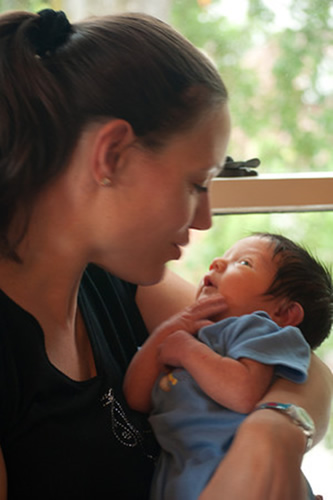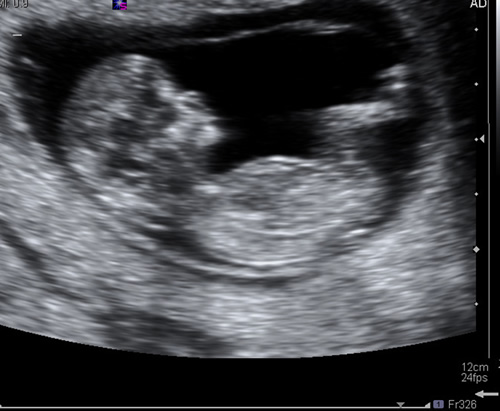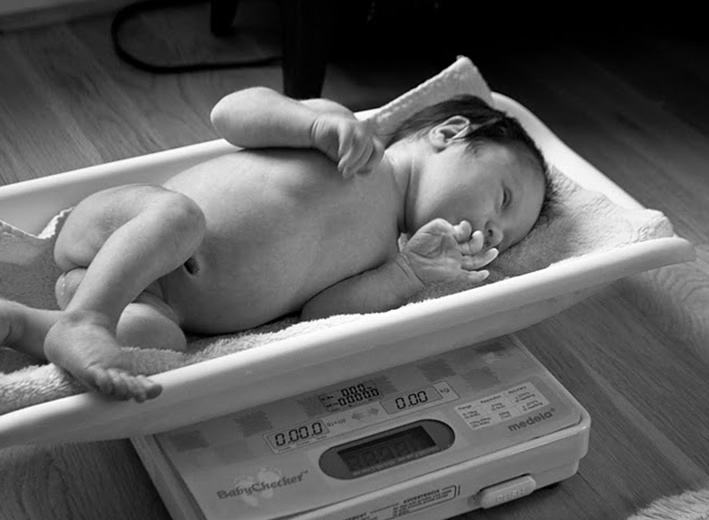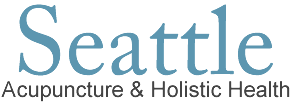Fertility Acupuncture Can Help You Get Pregnant
Whether you struggle with infertility or just want to enhance your fertility naturally, fertility acupuncture can help you to conceive. In women, regular acupuncture treatments stimulate the production of follicles by the ovaries and improves cervical mucous. In men, acupuncture improves sperm quality, sperm motility, sperm morphology and sperm count.
Medical studies have shown that acupuncture treatments for fertility can improve the thickness of the uterine lining and facilitate embryo implantation. For this reason fertility acupuncture is recommended to women who have had a number of miscarriages or who are going through IVF or IUI treatments.
Acupuncture has been used in China for thousands of years to promote fertility and to cure infertility. It is successfully used to treat medical conditions that contribute to infertility such as endometriosis, PCOS, high FSH and luteal phase defect, as well as unexplained infertility.
Fertility Acupuncturist Monica Legatt LAC
Monica Legatt has extensive experience in the field of gynecology and fertility acupuncture. For over 17 years she has worked with thousands of women to overcome gynecological disorders and become pregnant. Her patient testimonials reflect Monica’s consistently positive outcomes when it comes to patients conceiving. She has specialized training in the treatment of infertility with acupuncture and Traditional Chinese Medicine, as well as other areas of alternative medicine for infertility including herbal medicine, fertility massage, fertility yoga and naturopathic medicine. Some of Monica’s instructors include Klaus Wiemer PhD., Embryologist at The Northwest Center for Reproductive Sciences, Michael Opsahl, MS, Reproductive Endocrinologist at The Northwest Center for Reproductive Sciences, and Patricia Hunt PhD, professor and research biologist at Washington State University. Monica’s educational background with these specialists has prepared her to communicate with her fertility patients’ Western-medicine doctors while they undergo treatments such as IVF or IUI.
How Acupuncture Cures Infertility
Acupuncture focuses on increasing the patient’s overall health and wellness, thus enhancing fertility as a result. During women’s fertility acupuncture treatments, the blood flow to the reproductive organs increases and ovarian function improves leading to healthy ovulation and conception. In men the stimulation of the acupuncture meridians that correlate with the reproductive organs are treated to increase sperm count, improve motility, improve morphology and improve sexual stamina. These points are found primarily on the legs of the patient and above and below the navel: not on or near the groin area.
Fertility Acupuncture Can Treat:
Women
Men
The Benefits Of Fertility Acupuncture Include:
Fertility Acupuncture and Maternal Age
Even if it is not possible to reverse your chronological aging, nonetheless you can definitely influence the progress of your biological aging and improve egg quality with acupuncture. Practicing a healthy lifestyle in addition to regular acupuncture treatments can have a positive impact on slowing down the natural aging process and keep your eggs healthy. Chinese herbal medicine in conjunction with fertility acupuncture treatments is usually recommended to improve egg quality for a woman who is 37 or older.Studies have reported that there is a strong correlation between the age of the mother and her ability to conceive. However, it is important to remember that the eggs of some women in their forties can be kept in excellent quality due to slow biological aging. Fertility acupuncture can assist the body in doing just this.
Fertility Acupuncture and Hormones
Regular acupuncture treatments can be very helpful in regulating hormonal imbalances. Acupuncture influences the hormonal regulation centers in the brain, the autonomic nervous system, and the hypothalamic-pituitary-ovarian axis.
This is done over a period of months and with regular treatments. Acupuncture can help decrease high levels of FSH, which is related to the number of quality eggs a woman produces. High FSH is connected with poor quality of eggs. This value can fluctuate and can be brought down to acceptable levels when too high in order to help a woman who plans to undergo IVF treatments. Read our patient fertility acupuncture testimonials for several success stories from women who conceived after having acupuncture for high FSH.

Fertility Acupuncture and Fertility Charting
Tracking your basal body temperature is extremely valuable in determining your diagnosis in Traditional Chinese Medicine. Your menstrual cycle charts will help your fertility acupuncturist choose exactly what acupuncture treatment is appropriate for you during each week of your cycle, even if your cycles are irregular.
Keeping track of the basal body temperature is an excellent way for you to assess your progress with acupuncture by monitoring how your hormone fluctuation pattern is changing. Over a period of time, while getting acupuncture treatments, you will notice that you tend to ovulate closer and closer to day 14 and that your luteal phase is around 14-15 days in length. Your periods will flow easily, with less clots and cramps and less PMS. All of these improvements are signs that you are gaining better hormonal and reproductive health. Your fertility acupuncturist will give you precise instructions on how to accurately track and chart your basal body temperature.
Fertility Acupuncture and Chinese Herbal Medicine
Acupuncture for fertility is often combined with herbal medicine in order for the patient to achieve the best possible outcome. In the field of gynecology and fertility, herbal treatment is considered very important in most cases. Typically your fertility acupuncturist will give you different prescriptions to take during your follicular and luteal phases. If you are undergoing IVF or taking a medication such as Clomid or Femara, an experienced fertility acupuncturist will not prescribe any herbs that are contraindicated in combination with the medication you are taking from your reproductive endocrinologist or gynecologist.
The Timing of Acupuncture for Fertility
It is best to begin fertility acupuncture treatment 3 or 4 months in advance of trying to conceive because it takes 4-5 months for a follicle to mature from the antral follicle stage. Acupuncture treatments should be done weekly throughout your menstrual cycle to support fertility and to obtain the most benefit. If you become pregnant while receiving acupuncture treatments you are absolutely safe: receiving acupuncture while pregnant can prevent miscarriages and decrease the discomforts of pregnancy like morning sickness, water retention, lower back pain, and fatigue.
An experienced fertility acupuncturist who is treating you to assist in conception will choose acupuncture points for your post-ovulation treatments that are safe and appropriate in the event that you have become pregnant that cycle. Fertility acupuncture treatments post-ovulation always take into account the possibility that a fertilized follicle is implanting.
You can schedule your first acupuncture treatment for fertility at any time during your cycle except during your menstrual period. Your treatments will be determined by your acupuncturist based upon what phase of your cycle you are at, to better help your body at that time of your cycle. For example, a specific protocol may be used before ovulation to help with follicle development and cervical mucous quality, and after ovulation the treatment will focus on supporting implantation of a fertilized follicle. An experienced fertility acupuncturist should be able to give you a rough estimate on how many menstrual cycles you may need treatment, although this is something impossible to accurately know or predict. Some women conceive in the first month of treatment, and others need consistent uninterrupted treatment for 9 to 12 months or more to achieve all of the constitutional and gynecological changes necessary for conception. Some of our most compelling and inspiring fertility testimonials were written by patients who received treatment for a year or more.
IVF and Fertility Acupuncture
Acupuncture can be used to promote the success of in vitro fertilization (IVF) treatments. It is recommend to start regular acupuncture treatments at least 2 months prior to the beginning of an IVF cycle and to continue for 1 to 2 times a week until the day of the transfer. Acupuncture IVF treatments can be continued if the IVF cycle is successful to prevent miscarriage and to support a healthy pregnancy.
Your fertility acupuncturist will assess your individual circumstances and suggests a treatment plan for you at your first appointment.
In most case you will go through the following phases:
- Acupuncture & possibly herbs for 2-3 months to prepare the body for IVF cycle
- Acupuncture for ovarian stimulation and support
- Pre-egg-retrieval acupuncture treatment
- Pre-embryo transfer acupuncture treatment
- Post-embryo-transfer acupuncture to promote implantation
- Acupuncture treatments to prevent miscarriage in the first trimester

Fertility Acupuncture and Stress Reduction
It is well known that ongoing emotional stress creates imbalance in the autonomic nervous system. A number of studies have demonstrated that acupuncture influences the activity of the autonomic nervous system, which regulates important functions of the body that are not under the voluntary control. These include the heart rate, the endocrine system, and the digestive system. The autonomic nervous system is divided into two components: the sympathetic nervous system and the parasympathetic nervous system.
1. The sympathetic Nervous System's main function is to respond to stressful events by stimulating certain body responses like increasing the heart rate, constricting the blood vessels, and decreasing the digestive activity. The result of these changes are the preparation of the body to the fight-or-flight-response.
2. The parasympathetic nervous system's main function is to promote relaxation, aid digestive activity glandular secretions, lower heart rate, and put the body in a calm state that promotes wellness.
In our stressful social environment, many women and men are constantly in a stressful mode, which constantly activates the sympathetic nervous system and suppresses the parasympathetic one. Research studies in acupuncture and infertility suggest that acupuncture helps reset the autonomic nervous system back to a balanced state.
Relaxation through acupuncture treatment regulates the parasympathetic branch of the autonomic nervous system which is important for maintenance of proper regulation of our internal function including reproductive organs. This means that normally human beings should be relaxed, happy, looking for food and engaging in reproductive activity, just like our ancestors, millions of years ago.
Fertility acupuncture helps women relax even deeper and reach a state of healing and wellbeing that activates the flow of new energy though your body and the release of old stagnant energy away from the reproductive organs. Many of our patients who have conceived using fertility acupuncture mention in their testimonials how essential the stress-relief component of their treatments was for them.
Moxibustion and Infertility
Moxibustion is practiced by holding a moxa stick about one inch above the acupuncture point that needs stimulation. Moxa is a cotton-like substance made from the leaves of the plant Artemesia Vulgaris. Women with infertility sometimes suffer from a lack of heat and poor circulation. With Moxibustion, the acupuncture point is stimulated by heat instead of by inserting an acupuncture needle. The heat can soothe menstrual cramps and regulate a woman's monthly cycle, as well as increase blood flow to the ovaries. It does this by stimulating blood flow to the reproductive organs through the use of heat that enters the patient’s body at the location of the acupuncture point. The gentle soothing heat provided by moxa also induces a deep relaxation response, which is very important in enhancing fertility. Moxibustion can be used in conjunction with acupuncture and herbs to treat infertility, and it can be performed at home by the patient if your fertility acupuncturist advises daily moxa treatments during your follicular phase.
Treating Male Factor Infertility with Acupuncture
Infertility is more common in men than many people realize. The American Society of Reproductive Medicine reports that male factor is responsible for about 1/3 of fertility problems in the U.S., female factor for another 1/3, and male and female factors combined responsible for another 1/3. Some studies show that 48% of miscarriages are due to abnormal sperm issues. Therefore sperm testing is recommended for all male partners in couples trying to conceive. Acupuncture for men can help to improve sperm count, sperm motility, sperm morphology, forward progression and varicocele. Acupuncture also improves cases of erectile dysfunction, enlarged prostate gland, and male urinary tract infections that can affect male fertility. Treatment is best begun at least 3 months prior to trying to conceive, as it takes 75 to 90 days for sperm to generate. In some cases, acupuncture treatments may need to be carried out weekly for a period of 6 months or longer. Usually your fertility acupuncturist will prescribe an herbal prescription to take in conjunction with receiving acupuncture and also provide you with lifestyle and nutritional advice to support healthy sperm production.
Pregnancy Acupuncture & Post Partum Care
Once you have conceived, you have a journey ahead of you that has just begun! Traditional Chinese Medicine has a long history of helping women during their pregnancy and post-partum. Acupuncture and Chinese herbs can be safely be used during pregnancy for a variety of problems that can occur. During pregnancy it is best to avoid pharmaceutical medications, so pregnancy acupuncture and herbal medicine are a good choice of medical treatment. Women who receive acupuncture throughout their pregnancy often experience easier deliveries and a faster recovery post-partum. Acupuncture and herbal medicine are very effective for lactation support and milk supply. Some of our lactation support patients have reported their milk supply doubling after beginning a regimen of acupuncture and herbal medicine. The herbs prescribed post-partum for lactation support are safe and non-harmful for the breastfeeding infant. Herbs prescribed for post-partum-depression also are safe to take while breastfeeding.
During Pregnancy & Post-Partum Acupuncture & Herbal Medicine Can Treat:
- Anemia
- Morning sickness
- Fatigue
- Back pain
- Respiratory & Sinus Infections
- Digestive problems
- Edema
- Excessive or low amniotic fluid levels
- Heartburn
- Hemorrhoids
- Hypertension
- Sacro-iliac joint pain
- Threatened miscarriage
- Urinary tract infections
- Uterine ligament pain
- Breech presentation
- Labor induction
- Labor preparation
- Lactation Support
- Post Partum Depression
- Urinary Incontinence
- Uterine Prolapse
- Cesarean-section healing and recovery
- Mastitis

